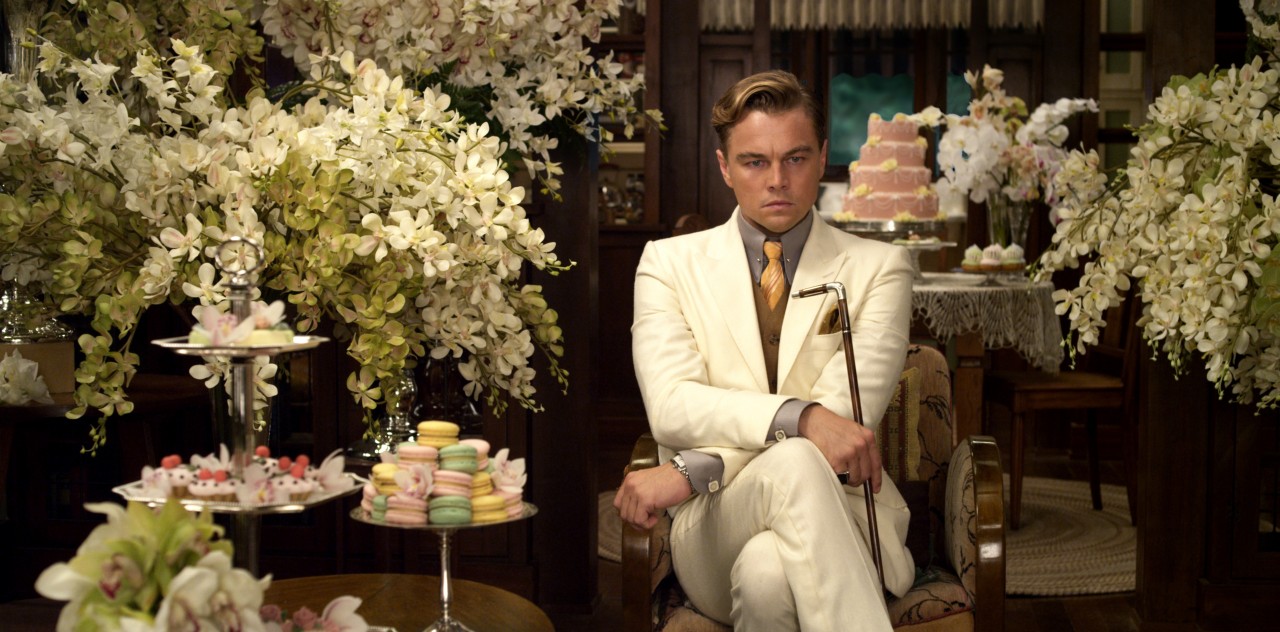If there’s one thing Baz Luhrmann does well, it’s theatrics. From 1996’s “Romeo + Juliet” to 2001’s “Moulin Rouge!” Luhrmann has an obvious knack for weaving soap opera atmosphere into his works. He’s a unique storyteller, but in “The Great Gatsby,” the Australian director went a little bit too over the top and missed the mark. The heart and inspiration that made “Moulin Rouge!” a success is sorely lacking in Luhrmann’s interpretation of F. Scott Fitzgerald’s monumental novel.
The director is a fantastic showman, there’s no doubt about that. The lush, grandiose and excessiveness of “The Great Gatsby” was rich and irresistible. The eye-searing glitz and glamour was spot on, and I can totally see just how beautiful and dazzling the film would have been if I had seen it in 3D––but that doesn’t hide that fact that the film ultimately left me feeling conflicted and confused.
Watching Luhrmann’s version felt like I was being spoon-fed what the novel is about without truly bringing any meaning to it. The director may have captured the intoxicating spirit of Fitzgerald’s era and remained faithful to the novel, but having the characters verbally explain every action and detail took away from the overall experience. Rather than letting viewers interpret the movie, Luhrmann took to spelling out the significance of everything from the Valley of the Ashes to the bespectacled billboard. What’s the point of watching a movie if its characters are going to spoil everything?
Fitzgerald’s novel feeds well into Lurhmann’s extravagant cinematic taste. I can’t stop gushing about just how dizzying the visuals were; the decadence of the 1920s flapper lifestyle, illuminated by Luhrmann’s use of ultra-bright colors and drug-induced parties laced with modernized sounds from Jay-Z brought the Roaring Twenties to life. The gorgeous costumes, combined with the sparkle and jazz of Gatsby’s parties, were to die for and Luhrmann spent a good amount of time showcasing just how good he is at creating eyegasmic settings.
However, there were some major problems with the narrative. The worst offense was the degree to which Luhrmann carefully choreographed each character’s intentions and internal struggles; at a certain point, the film became dull and awfully predictable. Hearing Carraway narrate was like listening to an abridged version of “The Great Gatsby.” It was far too easy and simple, and lacked the darkness and morbid reality that was present in the real thing.
The acting, on the other hand, was definitely top notch. Leonardo DiCaprio wore Gatsby like a second skin, having a thorough handle on Gatsby’s riotous emotions and turmoil. He was able to embody his confidence and gruesome insecurities at the same time; the movie didn’t truly start until DiCaprio took command of the screen.
Carey Mulligan (“Drive,” “Shame”) is always a delight, with her expressive features and uncanny ability to bring depth and complexity into every role. As Daisy, she was able to break through the character’s superficial and vapid façade and bring to the surface a conscientious and tormented Mrs. Buchanan. However, that comes with its own set of problems as she’s eventually broken down into nothing more than a cowardly, empty shell of a human being. Mulligan does such a great job of instilling hope in the viewers of a better Daisy and then tearing that optimism down that it’s hard not to applaud her efforts at making her character one of the most hated women in the history of literature––or cinema, for that matter.
Joel Edgerton (“Zero Dark Thirty”) also shows off his impressive acting chops as the domineering and brutish Tom Buchanan, while Isla Fisher (“Rise of the Guardians”) stole the screen as Tom’s rowdy mistress, Myrtle, in the little time she was given. Tobey Maguire (“Spider-Man” trilogy) rounded out the cast as narrator Nick Carraway. Though his physical performance of the naïve Carraway was sympathetic and well done, his actual narration was stale and lifeless. This mainly contributed to the fact that the story relies too heavily on Carraway to explain everything, almost as if Luhrmann doubted the intellect of his audience, and ultimately undermined Fitzgerald’s original labor.
I wanted to love “The Great Gatsby.” I truly did. And for a second, I thought I did fall for the bigger-than-life visuals and compelling soundtrack. But when it was all over, I left the theater feeling much like how Carraway must have felt after Daisy and Tom revealed their true natures: empty, frustrated and disappointed. The fine acting made the film bearable, but Luhrmann confused storytelling with showmanship. Rather than making us feel the decline of the American Dream and the ominous eyes of Dr. Eckleburg, he infantilized themes and symbols, rendering the film useless as a whole because it ceases to engage its audience. While Lurhmann told a story, he neglected the true meaning and heart of Fitzgerald’s celebrated novel.
Rating: 3.5 stars









